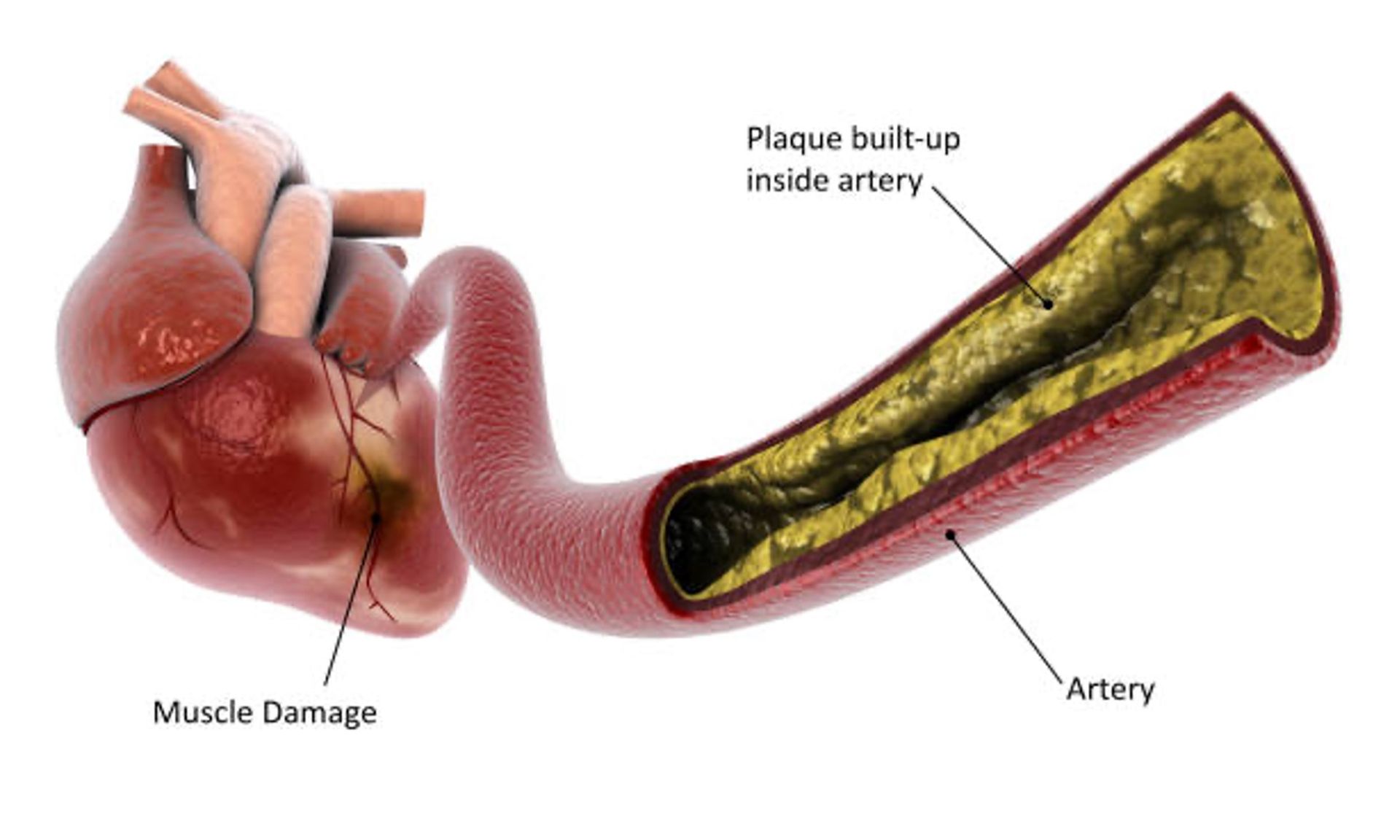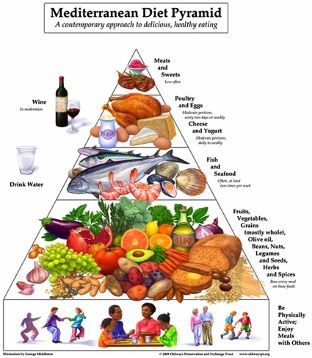Part 1: Embracing the Mediterranean Diet for Metabolic Health
Understanding Atherosclerosis and Metabolic Syndrome
Atherosclerosis Formation

Atherosclerosis is a condition characterized by the buildup of plaques in the arteries. These plaques are primarily formed from apo-B lipoproteins and other harmful LDL particles. When these lipoproteins are retained in the arterial walls, they trigger a maladaptive inflammatory response, leading to the formation of atherosclerotic plaques. Inflammation plays a crucial role in the progression of atherosclerosis, exacerbating the retention of lipoproteins and the subsequent buildup of plaque.
Metabolic Syndrome

Metabolic syndrome is a cluster of conditions that increase the risk of heart disease, stroke, and type 2 diabetes. According to the NCEP ATP III definition, a patient is diagnosed with metabolic syndrome if they present with three or more of the following risk factors:
- Abdominal obesity: Waist circumference >102cm in men and >88cm in women
- Triglycerides: Greater than 150 mg/dL
- HDL cholesterol (good cholesterol): Less than 40 mg/dL in men and less than 50 mg/dL in women
- Blood pressure: Greater than 130/85 mm Hg
- Fasting glucose: Greater than 100 mg/dL
The Mediterranean Diet: A Model for Preventing Cardiometabolic Disease

The Mediterranean diet is recognized as an optimal dietary pattern for preventing cardiometabolic diseases. Its key features include:
- Plant foods: Emphasis on fruits, vegetables, whole grains, beans, nuts, and seeds
- Fresh fruit: Typical daily dessert
- Olive oil: Principal source of fat
- Dairy products: Principally cheese and yogurt
- Fish and poultry: Consumed in low to moderate amounts
- Eggs: Zero to four consumed weekly
- Red meat: Consumed in low amounts
- Wine: Consumed with meals in low to moderate amounts
- Low in saturated fat: Less than 7% of energy, with total fat ranging from less than 25% to more than 35% of energy
Benefits of the Mediterranean Diet
The Mediterranean diet offers a multitude of health benefits, including:
- Improved lipid and lipoprotein profile
- Enhanced insulin sensitivity
- Reduced oxidative stress
- Decreased inflammation
- Improved endothelial function
- Lowered thrombogenic risk
- Reduced blood pressure
- Lower risk of metabolic syndrome
- Decreased incidence of obesity and adiposopathy
- Prevention of non-alcoholic fatty liver disease (NAFLD)
Research by Casas R et al. (2016) highlights the diet's effectiveness in preventing chronic inflammatory diseases due to its antioxidant and anti-inflammatory properties, which impact classical risk factors and inflammatory biomarkers related to the stability of atheromatic plaque.
Conclusion
Metabolic syndrome and related chronic diseases are often the result of poor diet and lifestyle choices. Resorting to drug therapy for conditions caused by a maladaptive diet is less rational than realigning our eating habits with our physiological needs. The Mediterranean diet, with its emphasis on whole, minimally processed foods, offers a sustainable and effective approach to improving metabolic health and preventing chronic diseases.
Stay tuned for next week's blog, where we will delve deeper into the specific benefits of individual foods within the Mediterranean diet and how you can start incorporating them into your daily routine for optimal health.
References:
- Casas R et al. (2016). Dietary Patterns, Foods, Nutrients and Chronic Inflammatory Disorders. Immunome Res, 12: 122.
- Esposito et al. (2004). JAMA, 292: 1440-1446.
- JAMA (1998). 279 (1): 23-28.
- JAMA (2001). 285.
- O’Keefe et al. (2008). JACC, 51: 249-255.
- Schwingshack L et al. (2017). Nutrients, 9(10): 1063.
- Mitrou et al. (2007). Arch Int Med, 167: 2461-8.
- The HALE Project.
- The New York Times, Gina Kolata, Feb 25, 2013.
Share this post if you found it helpful and subscribe to our blog for more tips on health and wellness. Subscribers get a free infographic on our 10 + 20 program for lifestyle and longevity reset and receive notifications for free webinars. Text us on WhatsApp for more details.



